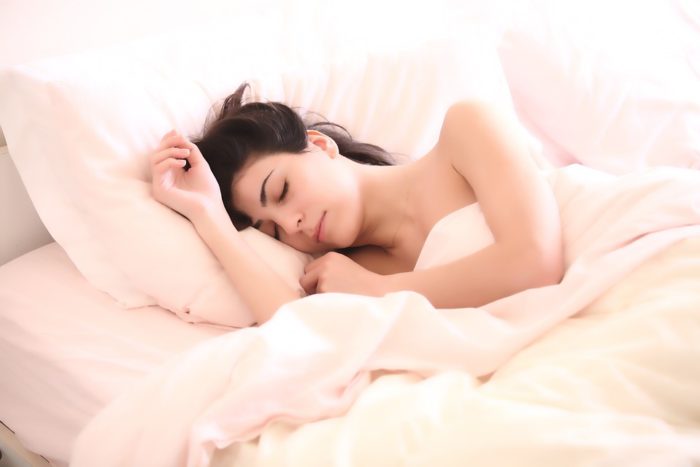
If you frequently have trouble getting to or staying asleep, you can rest assured you’re not alone. According to the American Sleep Association, 50-70 million adults in the US have a sleep disorder. Some may shrug at this, thinking a full night’s sleep isn’t really necessary — but for those of us who have insomnia, narcolepsy, or other sleep disorders, it’s an elusive dream.
You see, restful sleep is incredibly important as it improves both our mental and immune functions. Chronic sleep issues are linked to inflammatory diseases as well as a higher risk of mood disorders, like depression and anxiety (which in turn can be the cause of insomnia.) Furthermore, people who are sleep deprived may not realize just how much their normal brain functions have been compromised, leading to poor decision making that can have disastrous consequences.
As a society, we have a tendency to reach for pills the moment we have a couple rough nights of sleep. Though medication can be good for some things, prescription pills for sleeping can often make the problem worse. Despite their good intentions, sleep aids frequently disrupt sleep cycles, lead to dependency issues, and cause rebound insomnia when you stop taking them. So before you turn to medication, give these methods for better sleep a try instead:
Create a Healthy Sleep Routine
Since the human brain thrives on repetition, getting better sleep often requires sticking to a strict routine. Go to bed and wake up at the same time every day, even on the weekends. This will work in tandem with your body’s internal biological clock, thus allowing you to fall asleep and wake up more easily.
Your bedtime routine should involve winding down one to two hours before you actually want to fall asleep. This can include taking a warm shower/bath, changing into your pajamas, reading a book, dimming the lights, writing in a journal, and doing deep breathing exercises. All will help put you at ease and ready your body for sleep.
It’s important to avoid large meals, caffeine, alcohol, and nicotine near bedtime — all can disrupt your sleep in different ways.
No More Screens Before Bed
I know it’s hard — believe me, I do — but smartphones, tablets, computers, and television are all a big no-no before bed. There are two reasons for this:
- The blue light emitted by these devices blocks the release of melatonin (the hormone released by the brain that controls sleep-wake cycles).
- Checking social media sites, news, and email can result in strong emotions that make it harder to drift off to sleep.
If you absolutely have to check your phone or computer before bed, make use of settings and add ons (such as f.lux) to remove the blue light from your screen. However, skipping the use of electronics before bedtime is a much better idea.
Speaking of smartphones, if you use yours for an alarm or sleep tracker, be sure to turn off the alert for texts and emails before you go to sleep. The last thing you need is someone waking you up because they’re drunk texting you at 3 AM.
Make Your Bedroom a Healthy Sleep Haven
Environment has a lot to do with how well we sleep. Fortunately, there are a few reliable methods for making your bedroom the perfect place to sleep. The first is to keep your room cool (between 60 and 65°F ) as the lowered temperature tends to induce sleep. Make sure your blankets aren’t part of the problem. There should be just enough to keep you warm, but not so many that you sweat or throw them off in the middle of the night.
When you’re trying to sleep, light is the enemy. Keep your bedroom pitch black. You can do this by using blackout curtains, unplugging any devices that have indicator lights, and skipping the use of nightlights. If you are unable to do the above, consider purchasing a sleep mask.
Noise is another sleep bandit you’ll want to avoid. To reduce noise in your bedroom, run a fan or white noise machine and deaden sound in the room by placing rugs on bare floors and weatherstripping or replacing hollow core interior doors. If it is still too noisy, earplugs may be the answer.
Your bed should be the ultimate place to relax — which means it should only be associated with sleep and sex. That means you should avoid eating, watching TV, and working in bed.
If You Can’t Sleep:
If you’re having one of those nights when you just can’t get to sleep (or back to sleep), do the following:
- Don’t look at the clock. It will only increase anxiety and worry. Turn your alarm clock around so you can’t see the time.
- Keep a journal or notepad next to the bed. If you’re ruminating on a problem as you’re trying to fall asleep, write it down so you can sleep now and revisit the issue tomorrow.
- If you find yourself unable to fall asleep after about 20 minutes, leave your bedroom and do something relaxing like reading or writing. Once you feel drowsy, return to bed.
If you’ve diligently followed these good sleep habits for a few weeks and still find you’re not regularly sleeping well, it might be time to talk to a doctor. There are many serious problems that can cause insomnia and fatigue (anemia, thyroid disease, depression, heart disease, etc.), and it’s always better to be safe than sorry.
Restful, restorative sleep is something every person requires to be healthy and happy in their day to day lives. If you’re having trouble getting the shuteye you need, a relaxing bedtime routine, proper bedroom environment, and shelving your electronics may be the key to better sleep.

Have you ever struggled with sleep issues? What healthy sleep methods did you use to cope?
Also by Liz: “It’s All In Your Head”: What All Women Should Know About Medical Gender Bias
Related: Find Deep Peace With These 5 Stretches For A Good Night’s Sleep
How To Hit Reset On Your Day After A Poor Night’s Sleep
Get more like this—Subscribe to our daily inspirational newsletter for exclusive content!
__
Photo: Pexels
